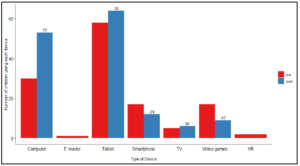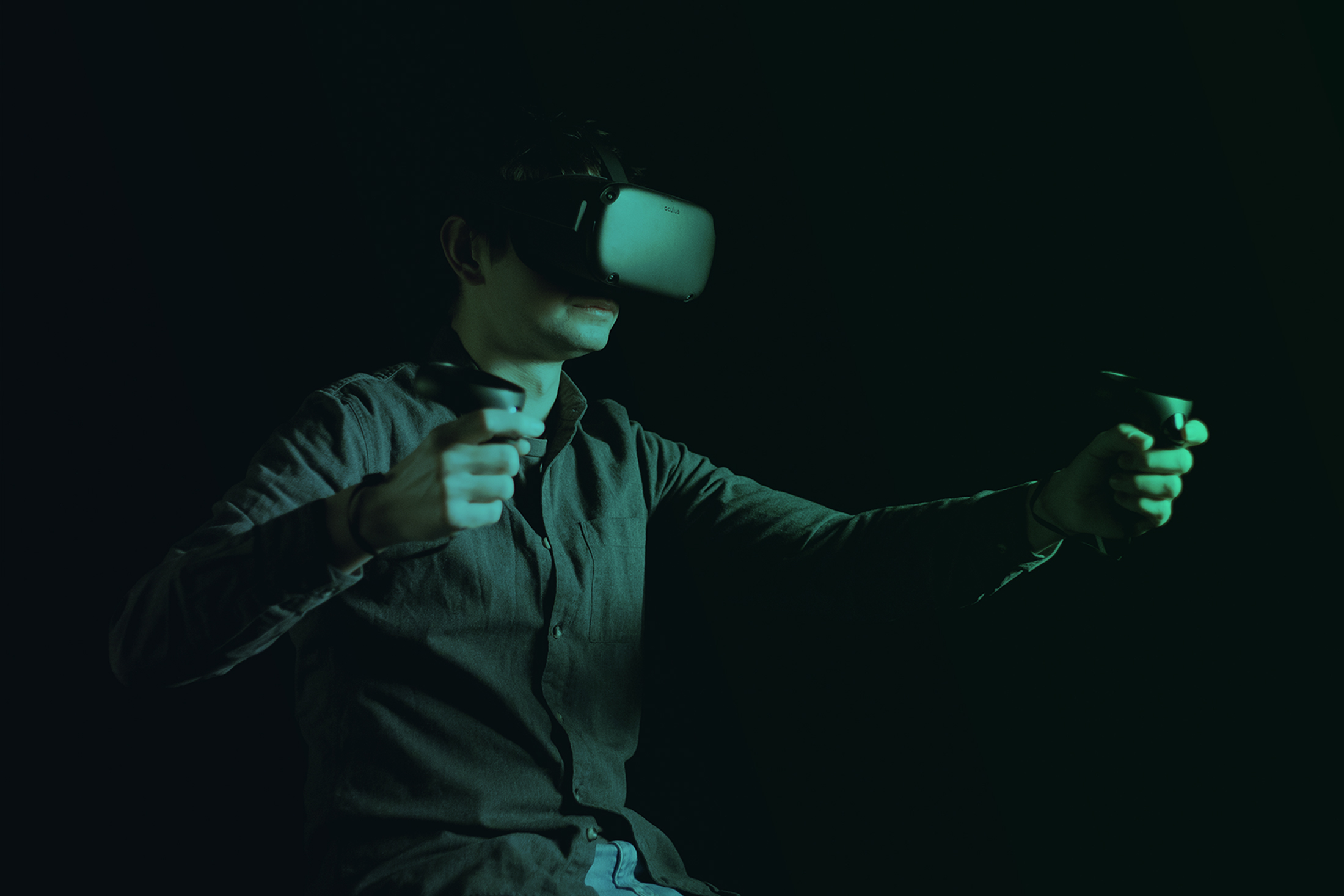Device use during teletherapy sessions for children with disabilities during the COVID-19 pandemic: Parent perspectives
Danielle E. Levac(1), Cydney Greenberg(1), Kayla Pinzur(1), Erica Richard(1), and Kristen Allison(2)
(1)Rehabilitation Games & Virtual Reality Lab, Department of Physical Therapy, Movement and Rehabilitation Sciences,
Northeastern University, Boston, MA, USA.
(2)Speech and Motor Impairment Lab, Department of Communication Sciences
and Disorders, Northeastern University, Boston, MA, USA
Introduction
The first 90 days of the COVID-19 pandemic (March – June 2020) caused widespread therapy service disruptions for children with disabilities and their families. Many services switched to a telehealth delivery model. Little is known about how therapists and families used devices (such as smartphones,
computers, active video games, tablets, and virtual reality headsets) for therapy purposes during this time. This study compares device use during therapy service delivery pre- and during the pandemic
and describes parent perspectives about benefits and challenges of device use for therapy purposes.
Methods
We undertook an IRB-approved anonymous online survey of parents of children aged 5-18 years with a disability, recruited using social media. Descriptive statistics and conventional qualitative analysis
summarized the data. 406 parents participated.
Results and discussion
Families had children primarily aged 5-9 (57%) years. Diagnoses included developmental delay (36%), autism (31%), cerebral palsy (20%), and/or other disabilities (48%). 42% of children lost access to all therapy services between March-June 2020, while 55% of children received at least one therapy service via telehealth. The majority (84%) of these participants had access to at least 1 device for therapeutic purposes, of which computers were the most frequently utilized (Figure 1). There was a slight reduction in the number of children using active video games for therapy pre- as compared to
during the pandemic (11.3% vs 9.2%). No respondents used virtual reality headsets for telehealth therapy purposes during the pandemic. Neither device cost nor lack of therapist support for device use were cited by parents as significant barriers or facilitators to device use. Most (75%) parents perceived teletherapy services as less effective than in-person. Parents who found teletherapy effective reported that their child thrived in small groups or individual interactions. Disadvantages of
teletherapy included challenges maintaining child focus and the lack of hands-on therapeutic support. Parents stated that
device use was beneficial to support specific skill development but were challenged by low ease of use and worries about their
child’s increasing dependence on devices. Participants who used active video games wanted more variation in games to sustain
children’s motivation to participate in therapy.
Figure 1: Change in device use for therapy purposes pre- compared to during the first 3 months of the COVID-19 pandemic.

Device use in teletherapy presented both benefits and challenges for parents of children with disabilities. While the lack of therapist perspectives on device use is a study limitation, our findings have implications for the creation of educational supports around teletherapy for families.
